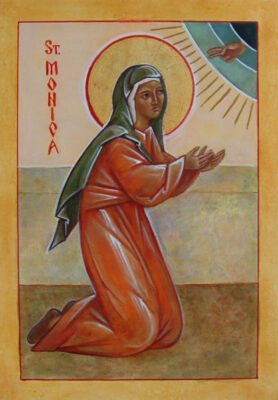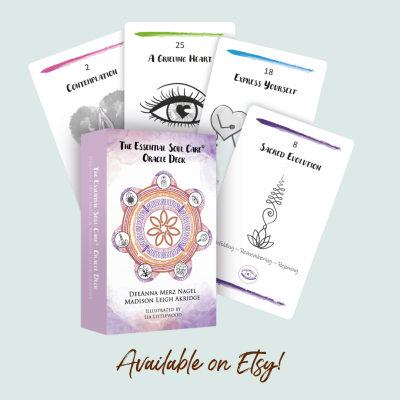
A recent assignment in a course I am taking involved understanding the motivation behind the confessions of Augustine of Hippo also known as Saint Augustine. Saint Augustine was a theologian and philosopher who converted to Christianity in 386. He wrote The Confessions of Saint Augustine. He was also a son to Monica, his dear mother who was frequently abused by Saint Augustine’s father.
This story has psychodynamic roots
Sometimes I cannot escape the imprint of my counselor training. As a psychotherapist trained in psychodynamic theory, I could not help but note that as a child St. Augustine witnessed his mother’s abuse and disrespect at the hands of his father. His belief in original sin might very well stem from the fact that while in the womb, he may have energetically and audibly witnessed his mother being chastised verbally and physically. This could certainly set the stage for being born into the world with a specific view of wrongdoing. His father was unfaithful and it is noted that his mother overlooked the infidelities hoping that with prayer and an epiphany, her husband would become a devout Christian partner. Saint Augustine wrote,
My mother spoke of Christ to my father, by her feminine and childlike virtues, and, after having borne his violence without a murmur or complaint, gained him at the close of his life to Christ.
With an unfaithful, abusive father, it is no wonder that St. Augustine was sexually indiscriminate beginning in his teens. This behavior was modeled for him from the onset of his life. There is also the incident at puberty of going to the baths with his father. In fact, the confessions are chock full of a trauma-filled life.
I actually googled to find anything along these thoughts I have; I wanted to be validated that I am not the only one who sees this as an obvious pattern of an adulthood influenced by childhood wounds. Alice Miller, the famous Swiss psychoanalyst comes to mind- particularly her books, Banished Knowledge, Thou Shalt Not be Aware and For Your Own Good.
In my google search I found this article:
Teaching Note: On Confronting Violence Against Women in the Christian Tradition as well as many more references to St. Augustine, original sin and child sexual abuse.
Saint Augustine’s conversion
I think perhaps his epiphany/decision to become a devout and celibate Christian may have been a way to “save” himself from his sense of sin- of guilt and shame. For survivors of abuse, going from one extreme- promiscuity to celibacy (in clinical terms, sexual anorexia)- is not uncommon. He had this experience of witnessing the abuse of his mother, even confessing that he experienced babies to be vile- at a time when such things were never discussed. Today, while the broad topic of abuse is still taboo in some circles it is much easier to seek help, tell one’s story or come forward. In the day of Saint Augustine, no one spoke of these travesties, making it necessary for a child, adolescent or adult to simply trust the intuition within to know that an act (infidelity, domestic violence, child abuse) was innately wrong. No realistic compass existed. His confessions seemed to be a way of working out what he had experienced – his way of seeking answers.
Original Sin. Freud certainly fanned that fire.
I found that reading and learning about St. Augustine was much like reading about the life of Freud- both lives seemed fraught with the remnants and influences of early trauma resulting in rigid beliefs. I admit these are my intuitive first impressions of my exposure to St. Augustine but having come late in life to his love of God, he seems to spend an inordinate amount of time deconstructing and unpacking scripture in light of his own sin-filled (as he would have it) life, particularly around matters of sexual pleasure. I do not sense his life of celibate devotion as something that brings joy as other people who choose a monastic or celibate life have expressed, but rather, this “choice” seems a means to understand the life he lived- but as if he was brought to this point of surrender in becoming a devoted Christian servant without free will. For Christians and non-Christians alike, much psychohistory can be learned from Saint Augustine’s life which begs us to look beyond his sainthood and consider the psychological and sociological impact his life and his works have had on generations of Christians. Finally, I share this article below from The New Yorker which confirms I am not alone in my thinking.
Domestic Violence Awareness Month is October
I found it ironic or perhaps synchronous that this assignment came to me in October. This is Domestic Violence Awareness Month. I realize I am coming in on the tale-end of the push for awareness but better late than not at all. Saint Augustine is revered in the Catholic and Orthodox churches as is his mother Monica, considered the Patron Saint of domestic abuse survivors.
CLICK HERE for an International List of Domestic Violence Agencies





